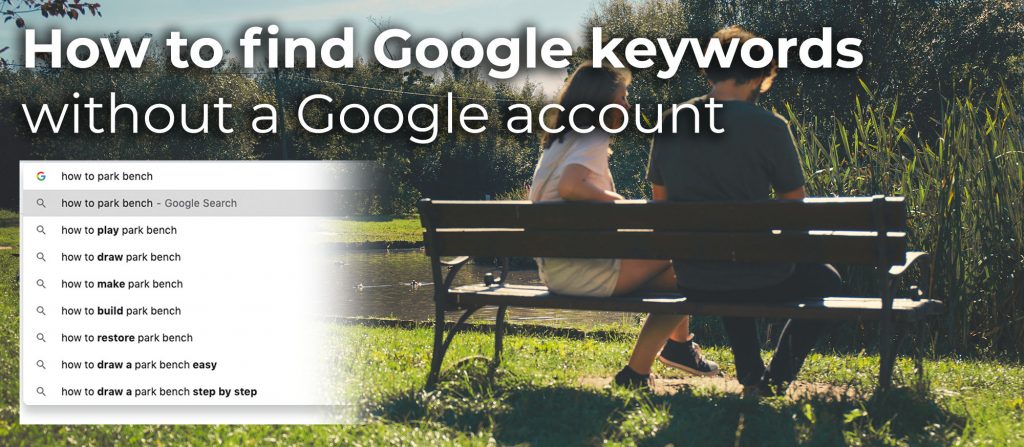Google Keyword Planner tool is a robust feature within Google Ads accounts which provides tons of useful data for strategizing your Google Ad campaign. For instance this tool will tell you the average monthly searches for a keyword, a competition grade from low – high, and the bidding range for related campaigns. In addition to this, it will take the keywords you’ve fed it, and come up with other related keyword suggestions.
But what if you are simply trying to strategize blog posts or other copy on your site, without any Google Ad campaign at all?
Getting Google Keyword Ideas Without Google’s Keyword Planner Tool
Luckily, there is a super easy strategy for brainstorming keywords that doesn’t require setting up a Google Ads account.
Simply use an incognito browser to visit google.com, (…the only time I’ll ever refer to Google in such a way…) and start typing your starter keywords, watching for the autosuggestions served up by Google.
There are a few generic phrases I use to help kickstart my keyword searches. I’ll use a recent project for a park equipment website as an example.
In this case, I’d like to write a post about our new picnic tables, but I want to write a post that relates somewhat to the things people are already googling.
Some safe assumptions we can make without the help of Google autocomplete:
Before we even need to scour the internet for keyword suggestions, there are a few safe assumptions we can make.
- Listing the material of an item before the item is usually a decent keyword idea. For instance “Recycled Plastic Picnic Table” or “Concrete Picnic Table” are both more specific than “Picnic Table” and will probably serve as a decent keywords.
- Adding “for sale”, “for rent” or “near me” to the end of a product generally works to create a decent keyword. These are common addendums people use when shopping online.
- Adding “in [location name]” for local products serves as a good keyword. Again, when people are surfing for products or services online, if your product or service is in any way localized, people will be searching with the city name. In my case, I could use “Picnic Tables in Austin”.
Here’s what I might type into the Google homepage, watching for autocomplete to give me other keyword suggestions:
- Picnic tables for…
- Picnic tables with…
- How to picnic tables…
- Where to picnic tables…
Here’s what the exercise produced:
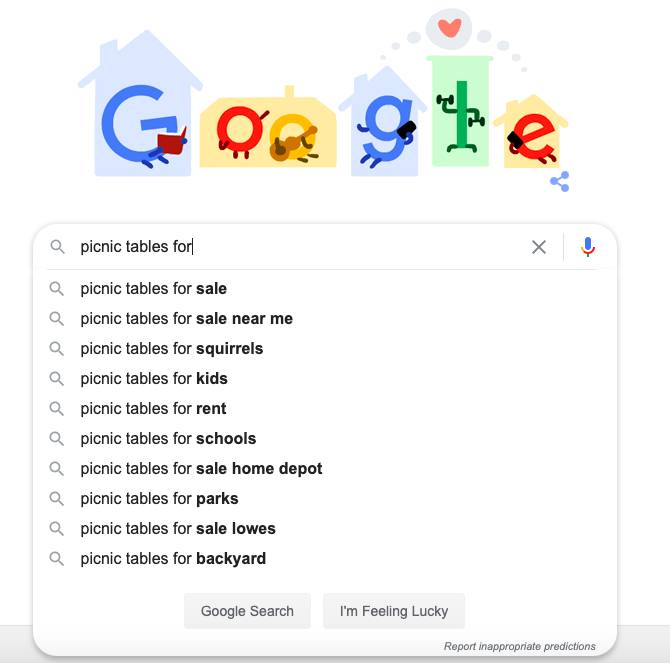
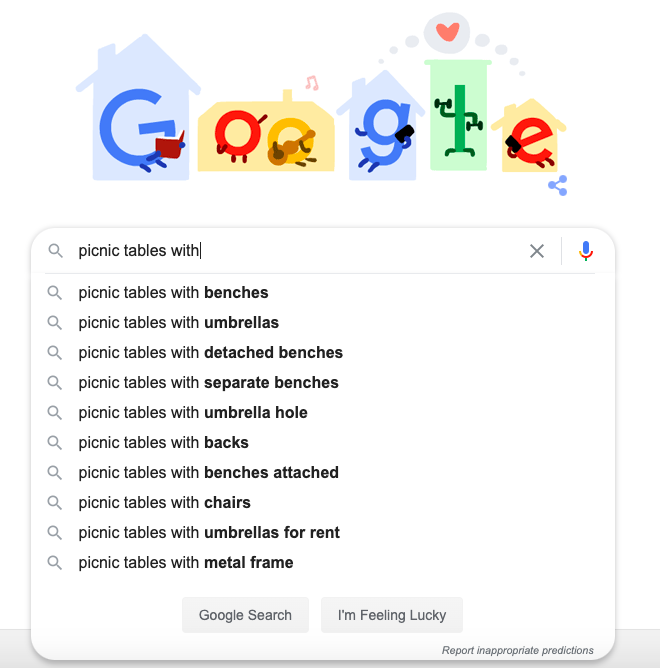
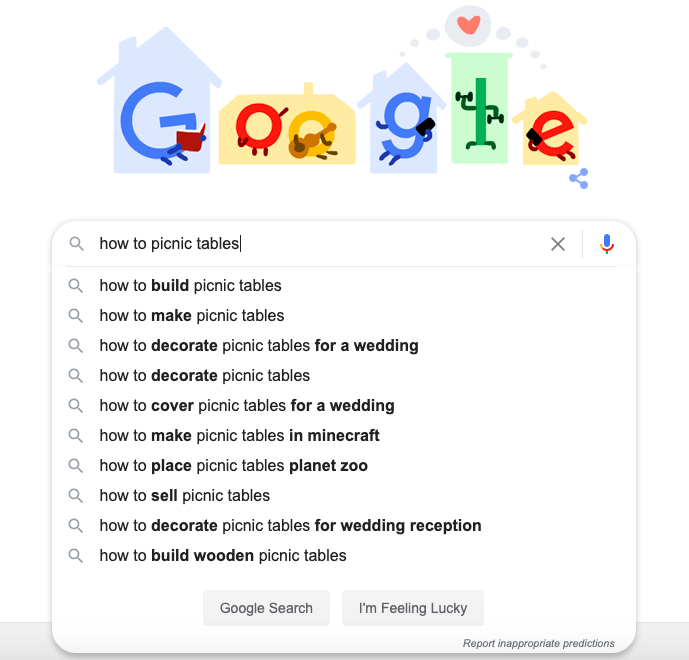
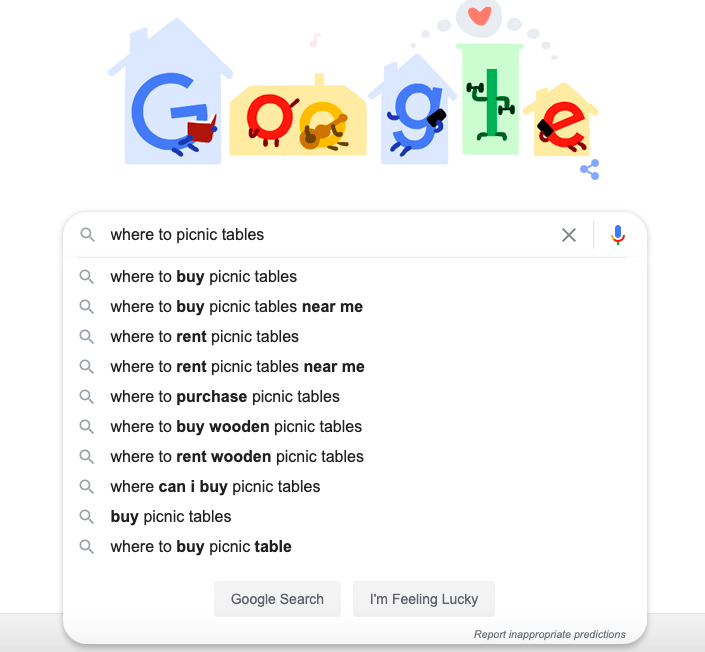
Notice that the autocomplete exercise worked even when the fill-in word I was looking for didn’t come at the end of my initial keyword. “Where to buy picnic tables” was one of the suggestions for “Where to picnic tables” for instance.
Apply this keyword hack to Amazon as well.
If you’re writing copy for Amazon, run this exact experiment with Amazon’s homepage search as well, since Amazon has its own search. In my case, the suggestions are very similar, but not entirely the same.
For example “Picnic Tables for Camping” and “Picnic Tables for outdoors foldable” came up in Amazon where they didn’t in Google.
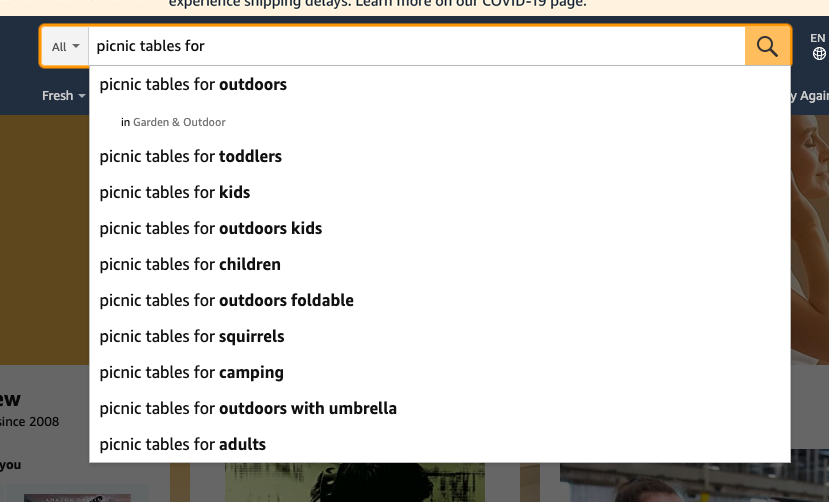
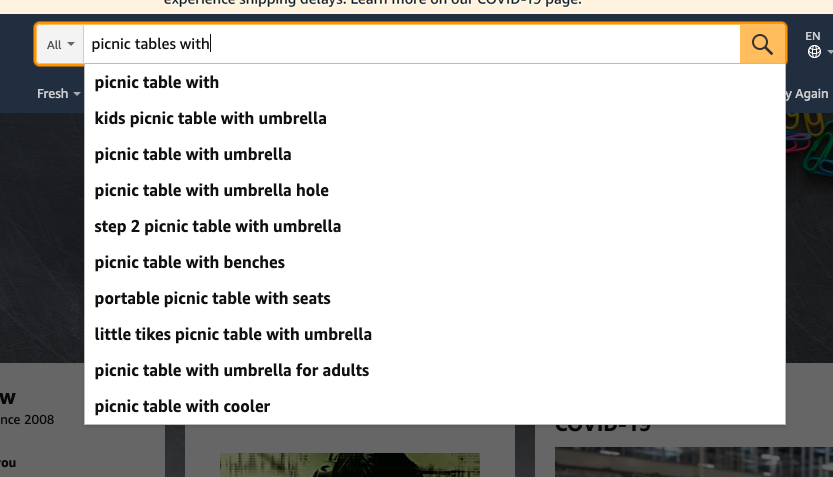
(Oddly…”Picnic tables for squirrels” shows up in both…so I guess I have a new product line suggestion to bring to my clients.)
Conclusion or TL;DR
In short, use the search autosuggestions as a brainstorming tool when writing copy for Google, Amazon, or any other retail site.

